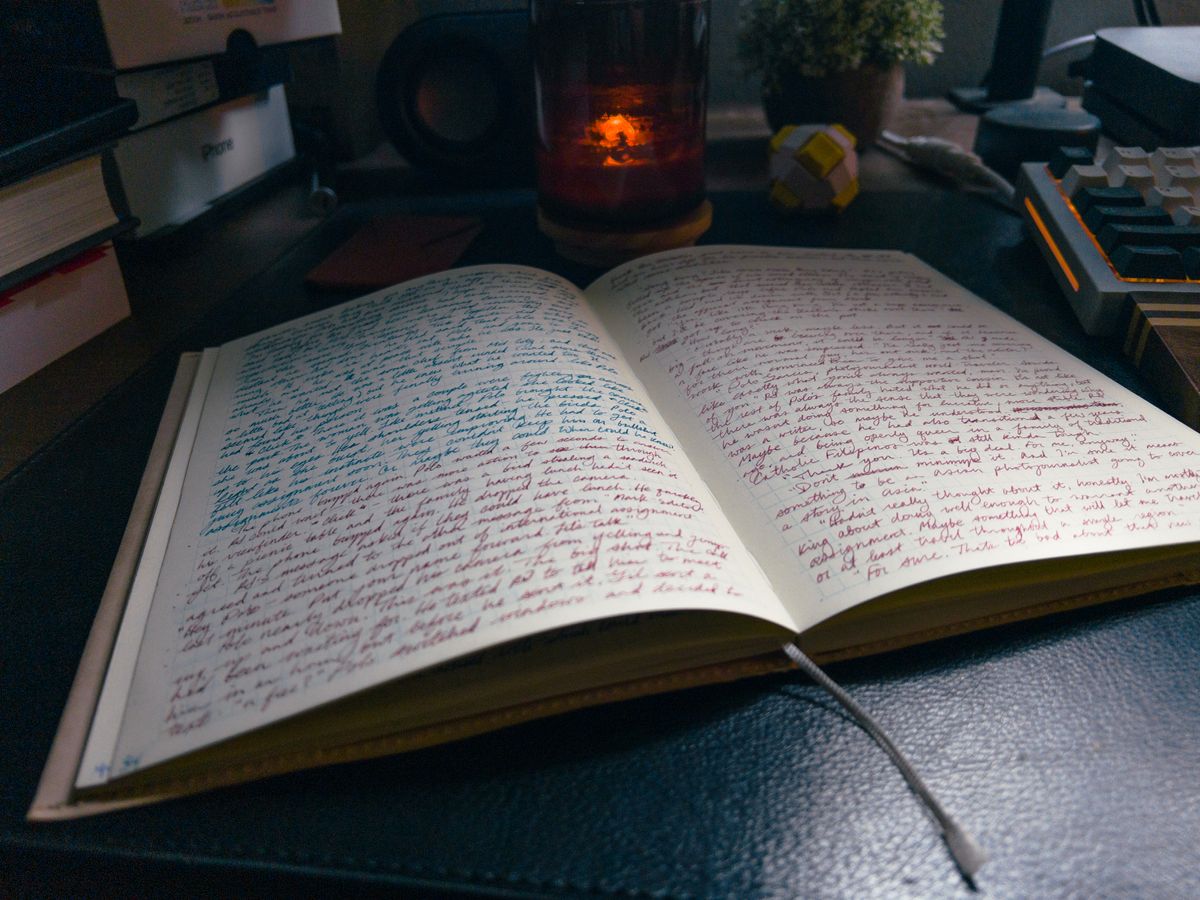First drafts are for making a mess
Expecting yourself to write a ‘good’ first draft is a mistake.

First drafts are not for making stories for other people to enjoy. They’re for putting the initial lump of clay on the table, for clarifying to yourself what the story is (characters, settings, moments) and what the story is about (value shifts, changes, turning points). Like Terry Pratchett said, “The first draft is just you telling yourself the story." It’s a map for when you do the real writing of subsequent drafts.
Seeing first drafts this way gives you permission to insert “note to self: flesh this out” or “somehow X happens” or clunky dialogue and keep moving. The point isn’t to have all the answers to your story upfront; the point is to get as much of it down so you can start shaping it into something insightful and surprising.
Good fiction writing happens in stages
Good storytellers don’t just include people who can just write something incredible off-the-cuff. It includes (to a larger degree, I’d imagine) people who are a.) prolific at making things up, and b.) good at revising what they initially make up. The step between an initial idea and a good story requires an intermediary step: a draft that is more than an initial idea, but still isn’t a good story. You can’t skip this step, but most people stop there and assume that the first draft is all that they’re capable of—that they should judge themselves by their first iteration, and not their last.
We’re all critics, we’re all so good at recognizing what’s shitty about something… but then we’re all so bad at making something. So just make something bad and then criticize it until it’s good. — Dan Harmon
Raising expectations of first drafts is a form of Resistance
We put a great deal of pressure on first drafts because, deep down, we're afraid that the great idea in our heads had will (entirely due to our deficiencies) end up look far worse in real life. First drafts, in all their messy glory, confirm our fears that we're not very good at this. So, we never finish (or we never start to begin with). In his book The War of Art, author Steven Pressfield calls our refusal to carry through our creative objectives “Resistance.”[1] The act of putting pressure on our first drafts to be perfect little gems right from the start is an expression of Resistance, an act of self-sabotage against our desire to become good storytellers.
Give yourself permission to write a mess
We need to come to grips with the fact that we judge our favorite writers by their finished work, while we judge ourselves by our first attempts. It’s wildly unfair to ourselves to expect much of our first drafts. It’s much kinder to set an achievable bar for first drafts: is it finished? That’s all a first draft has to be. We need to give ourselves permission to write something messy and unfinished off the bat.
Don’t let your goal be writing a good first draft; don’t put that pressure on yourself. Let your goal be a lot lower: write a first draft that exists. It doesn’t need to be good or even coherent—it just needs to exist. That’s something you can work with.
Resistance is the name for when you want to do something important to you—write a novel, send a submission—but you refuse. Creative resistance comes from our own fear that the work in our heads won't live up to the actual work we'll produce. Understanding, working through, and eventually accepting our own resistance to The Work is key to maturing as an artist. It's also the only way you'll be able to finish the work you've devoted yourself to. ↩︎
If you want to read more stuff like this, subscribe to my email newsletter. New work goes live every Monday!
